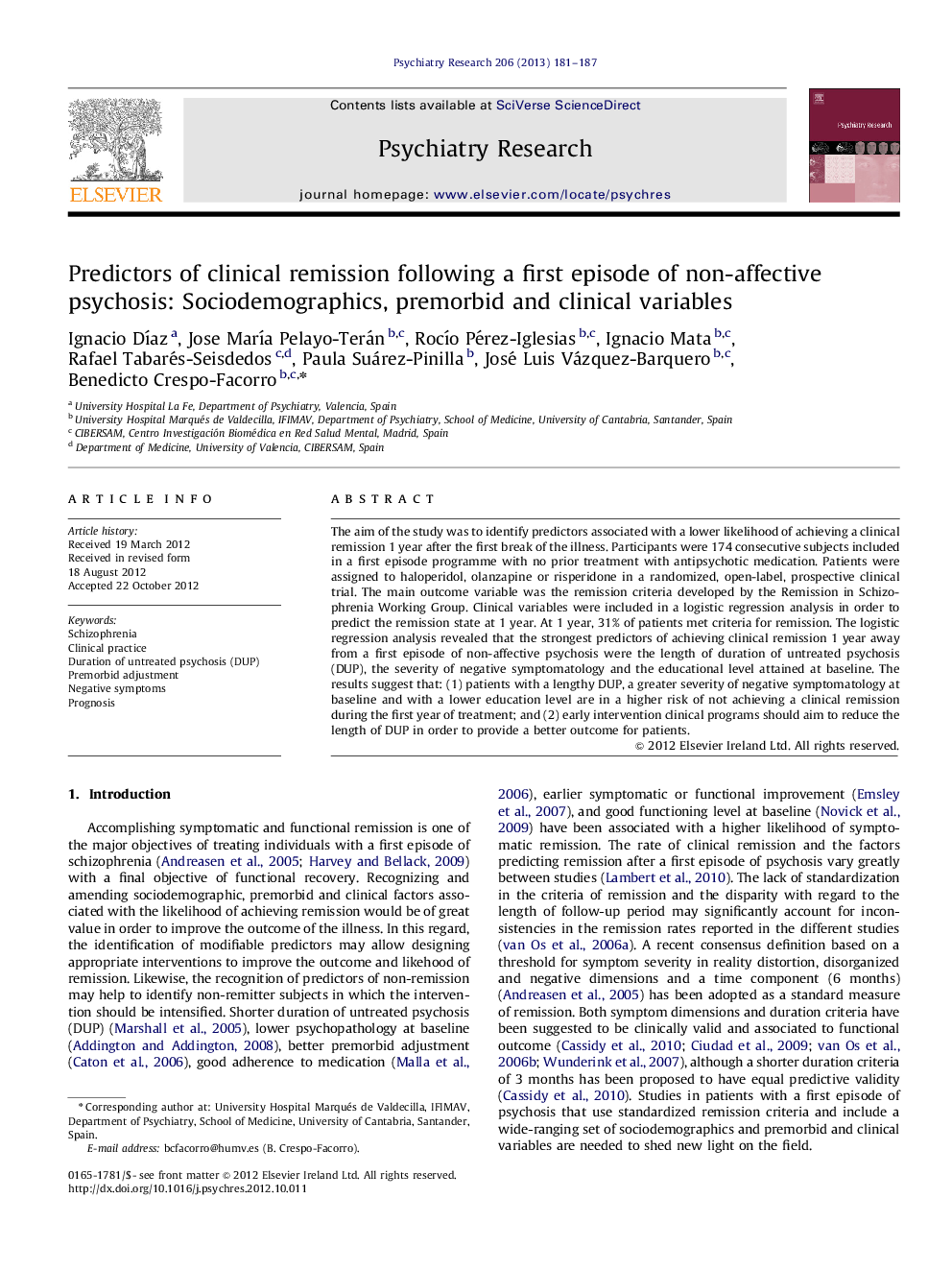| Article ID | Journal | Published Year | Pages | File Type |
|---|---|---|---|---|
| 331952 | Psychiatry Research | 2013 | 7 Pages |
The aim of the study was to identify predictors associated with a lower likelihood of achieving a clinical remission 1 year after the first break of the illness. Participants were 174 consecutive subjects included in a first episode programme with no prior treatment with antipsychotic medication. Patients were assigned to haloperidol, olanzapine or risperidone in a randomized, open-label, prospective clinical trial. The main outcome variable was the remission criteria developed by the Remission in Schizophrenia Working Group. Clinical variables were included in a logistic regression analysis in order to predict the remission state at 1 year. At 1 year, 31% of patients met criteria for remission. The logistic regression analysis revealed that the strongest predictors of achieving clinical remission 1 year away from a first episode of non-affective psychosis were the length of duration of untreated psychosis (DUP), the severity of negative symptomatology and the educational level attained at baseline. The results suggest that: (1) patients with a lengthy DUP, a greater severity of negative symptomatology at baseline and with a lower education level are in a higher risk of not achieving a clinical remission during the first year of treatment; and (2) early intervention clinical programs should aim to reduce the length of DUP in order to provide a better outcome for patients.
